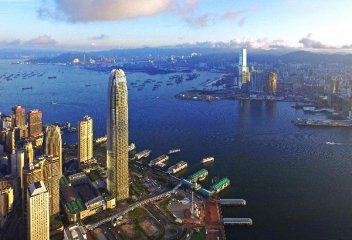Outlook on South Africa's Baa3 ratings changed to negative on risk of continued deterioration in finances, the agency said.
Acute financial stress for state-owned enterprises, in particular electricity utility Eskom, continues to require sizeable ongoing support from the government, Moody's said in a statement.
The development of a credible fiscal strategy to contain the rise in debt, including in the 2020 budget process and statement, will be crucial to sustain the rating at its current level, said Moody's.
South Africa's high unemployment, income inequality and related social and political challenges have proven to be a greater obstacle to government plans to raise potential growth and contain fiscal deficits than expected a year ago, Moody's said.
"We have revised our medium-term GDP growth projections for South Africa to 1%-1.5% percent, down from earlier expectations of a gradual increase to 2.5%-3% percent," said the agency.
The downgrade was seen as the final step before Moody's strips South Africa of its "investment grade" Baa3 long-term foreign-currency and local-currency issuer rating, which will leave it at "junk."
Two other major international rating agencies - S&P Global Ratings and Fitch -- have placed South Africa's creditworthiness to sub-investment grade (commonly known as junk status).
"The current rating rests on the government's ability to quickly develop a credible strategy to halt and ultimately reverse the rise in debt. Such a strategy has not been forthcoming to date," Moody's warned.
South Africa's debt-to-GDP ratio, which as recently as two years ago was at 50.6 percent, is currently 61 percent and will grow to above 71 percent of GDP by 2022.
The negative outlook signals in part Moody's rising concern that the government will not find the political capital to implement the range of measures it intends, and that its plans will be largely ineffective in lifting growth, the agency said.
While the government has some plans to address problems like unemployment and low growth, it has faced obstacles mainly due to outstanding vested interests, and the social and political challenge of imposing measures that are initially likely to be detrimental for parts of the population, according to Moody's.
For example, the country's new Mining Charter is unlikely to boost investment in the sector given persisting regulatory uncertainty amid ongoing appeals against some provisions of the charter, said Moody's.





















Latest comments